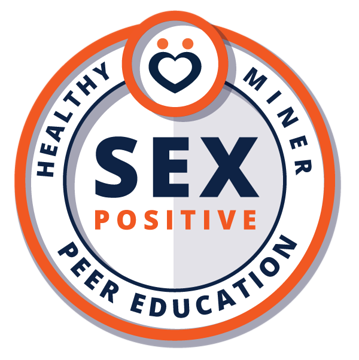Frequently Asked Questions
HIV/ AIDS
For most people, the answer is no. Most reports of a cure involve HIV-infected people who needed treatment for a cancer that would have killed them otherwise. But these treatments are very risky, even life-threatening, and are used only when the HIV-infected people would have died without them. Antiretroviral therapy (ART), however, can dramatically prolong the lives of many people infected with HIV and lower their chance of infecting others. It is important that people get tested for HIV and know that they are infected early so that medical care and treatment have the greatest effect.
About HIV/ AIDS. (2015, January 16). Retrieved May 8, 2015, from: http://www.cdc.gov/hiv/basics/whatishiv.html
STDs & Pregnancy - CDC Fact Sheet. (2014, December 16). Retrieved May 8, 2015, from http://www.cdc.gov/std/pregnancy/STDFact-Pregnancy.htm
Thanks to the work of biopharmaceutical scientists, the disease is no longer a death sentence and the costs are now manageable.
The good news is that today, a 20-year-old diagnosed with HIV can expect to live a long and full life. In fact, advances in treatment options have revolutionized what it means to live with HIV/AIDS. For two famous athletes, Arthur Ashe and Magic Johnson, the short time between their diagnoses was the difference between respectively succumbing to AIDS-related pneumonia at 50-years-old and anticipating a full life expectancy.
As we continue our march forward in the fight against HIV/AIDS, you should know that biopharmaceutical research companies continue to work on more than 70 potential new medicines and vaccines. These potential treatments will continue to forge a path toward hope and progress in the great battle against disease.
http://www.phrma.org/catalyst/a-visual-journey-how-hivaids-became-a-treatable-disease
STIs / STDs
You can catch herpes just from kissing someone on the mouth. And while experts believe the risk of catching HIV (the virus that causes AIDS) from kissing is low, someone who has a cut or sore in the mouth has a chance of infection during open-mouthed kissing. STDs can be transmitted through all types of sex, including oral sex. Mouth-to-genital contact can spread many STDs, including HIV, both from giving and receiving oral sex.
Lancaster, J.B. (2015). Teens health. Retrieved from
http://kidshealth.org/teen/expert/birth_control/kissing.html
Although an exact percentage is not known, as of 2011 the UTEP Student Health Center has registered about 30 new cases of STDs each month. This number does not include UTEP students who address their issues with a personal doctor or at a community clinic.
Perez, D. (2011, February 11). UTEP Health Center Covers Benefits of Condom Use.
Retrieved May 8, 2015, from http://admin.utep.edu/Default.aspx?tabid=68106
STD and STI are two terms that often mean the same thing — but the “D” stands for “disease,” while the “I” stands for “infection”. Medically, infections are only called diseases when they cause symptoms, and many STIs don’t have any symptoms. So that’s why you may hear people say STIs – it’s technically more accurate, and also reminds people that there are often no symptoms so it’s important to get tested.
But many people are more familiar with the terms “STD” and “sexually transmitted disease.” So it’s really common to hear people use these terms even when there are no signs of disease. And that’s why we tend to use STDs when we’re talking about them.
Source: plannedparenthood.org
BIRTH CONTROLS
(Like having sex without protection, e.g. condom)?
No method of contraception other than sterilization is 100 percent effective against pregnancy, the more precautions you take, the less likely you are to get pregnant. If you absolutely do not want to get pregnant, yet you still plan to be sexually active, your partner should use a condom in addition to your chosen method of contraception.
Goldstein, S.R. (2015). Ask the expert. Retrieved from: http://www.healthywomen.org/content/ask-expert/1788/effectiveness-birth-control-pills
“Don’t store condoms in a wallet or car because heat can damage them. If you do carry a condom in your wallet, replace it often. It is better to use a condom that has been in your wallet for a while than to not use one at all”. Always keep condoms in a cool, dry place away from heat and sunlight, such as your bedroom night stand. Do not keep them in a medicine cabinet. SEPA. (2015). Helpful tips for male condomuse. Retrieved from: https://effectiveinterventions.cdc.gov/docs/default-source/sepa-implementation-materials/SEPAsession2finalMG-1.ppt?sfvrsn=0.
Birth control pills contain the hormones estrogen and progestin.The pill is taken at the same time each day. (CDC, 2015)The hormones in the pill keep the eggs from leaving the ovaries. Birth control pills also make cervical mucus thicker which keeps the sperm from getting to the eggs. (Planned Parenthood, 2014) Centers for Disease Control and Prevention. (2015). Contraception. Retrieved from: http://www.cdc.gov/reproductivehealth/unintendedpregnancy/contraception.htm# Planned Parenthood. (2014). Birth Control Pills. Retrieved from: http://www.plannedparenthood.org/learn/birth-control/birth-control-pill
If the condom comes off inside of you, you will have to take your hand and fish out the condom from the vagina. If the male has already ejaculated, it is recommended that you seek medical advice from the pharmacist and obtain a Plan B in order to prevent pregnancy.
HEALTHY RELATIONSHIPS
If you are thinking of having sex, or being intimate (doing any sexual stuff), it's up to you to decide when the time is right. Whether it’s your first time or you’ve had sex before, it’s perfectly natural to wonder whether you’re ready to have sex with somebody, or whether you want to continue having sex with him or her. You can ask yourself these questions to help you decide See more at: http://www.avert.org/am-i-ready-sex.htm#sthash.mV7Iq9hD.dpuf
http://stayteen.org/sex-ed/article/i-dont-think-im-ready
http://asktheexperts.plannedparenthood.org/?p=4163
In a healthy relationship, both people feel good about the relationship most of the time. There are many things we can do to build healthy relationships. Remember that in any relationship, both people must be willing to put in the effort. One person cannot build a great relationship alone. Here are some tips:Love yourself, share your feelings and listen to your partner’s, be honest and expect honesty. If you want to know what is on your partner's mind — ask. Spend time on your own and let your partner do the same.It’s OK to have disagreements, forgive and expect forgiveness and help your partner feel good about her- or himself and expect the same in return.Communicate openly and honestly about sex and take care of your sexual health. Planned Parenthood. (2014). How to have a great relationship. Retrieved from: http://www.plannedparenthood.org/learn/relationships/your-relationship-good-you
- Make reference to an event, movie, online video clip, celebrity, or television show that touches on or can be related to HIV.
- Start the discussion with a question about how you can protect yourself against HIV and ask your family member/friend for advice.
- If you already feel comfortable talking openly about HIV with your family or friend, try opening the conversation more directly with an interesting fact about HIV
- Ideally, choose a place and time where you and your family member or friend can talk without too much distraction. But remember, situations and interactions occur in our everyday lives that can be a natural trigger for starting the conversation about HIV. Take advantage of such occasions when you and your family member or friends are doing something together to help jump start the conversation.
PREGNANCY AND SEX RELATED
“Not true. It only takes a couple of seconds for sperm toreach the cervix, so douching is pointless when it comes to preventing pregnancy. The only effective way to prevent pregnancy after unprotected intercourse is to take an emergency contraceptive within five days.”
Religion, culture, family values, and personal feelings and choice help defines what each individual considers "enough" or "too much" sex. Questions to consider includes: What makes you think your stats are off the chart? What is bad about sex? Is it because it is unhealthy or is it getting in the way of your daily routine. These questions need to be answered when it comes to defining what you feel may be "too much sex." Source: Is it possible to have too much sex? (2010, October 25). Retrieved May 8, 2015, from: http://goaskalice.columbia.edu/it-possible-have-too-much-sex
Painful intercourse or dyspareuniacan occur for a variety of reasons, ranging from structural problems to psychological concerns. Many women experience painful intercourse at some point in their lives. There are many causes to painful intercourse, such as psychological problems (anxiety, depression, and physical appearance), stress, and history of sexual abuse, surgeries, and even injuries. Painful intercourse (dyspareunia). (n.d.). Retrieved May 8, 2015, from: http://www.mayoclinic.org/diseases-conditions/painful-intercourse/basics/causes/con-20033293




